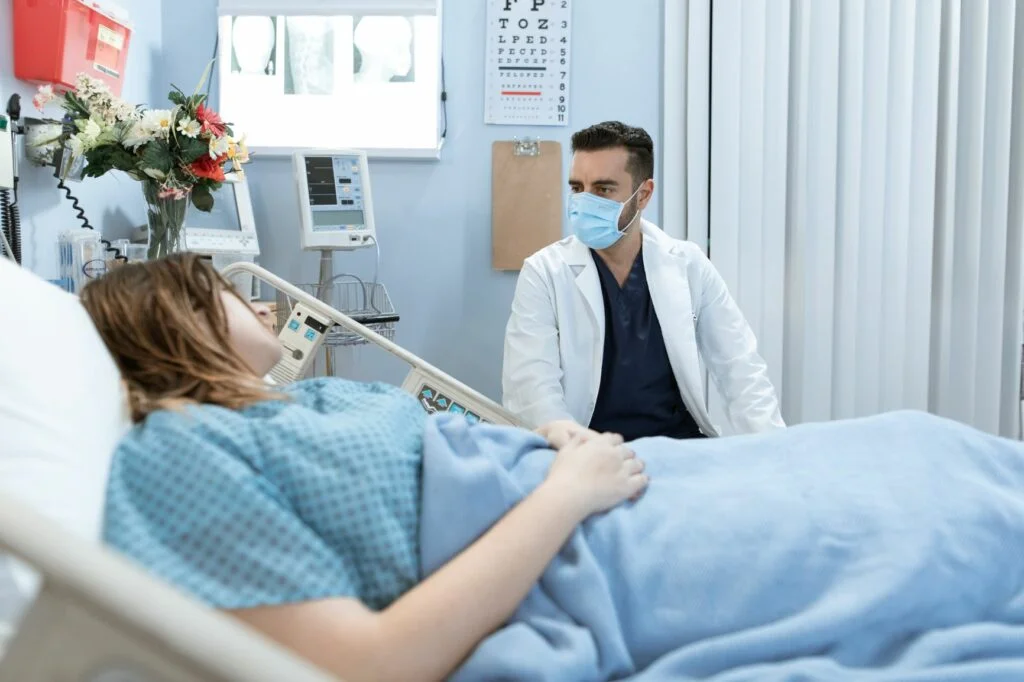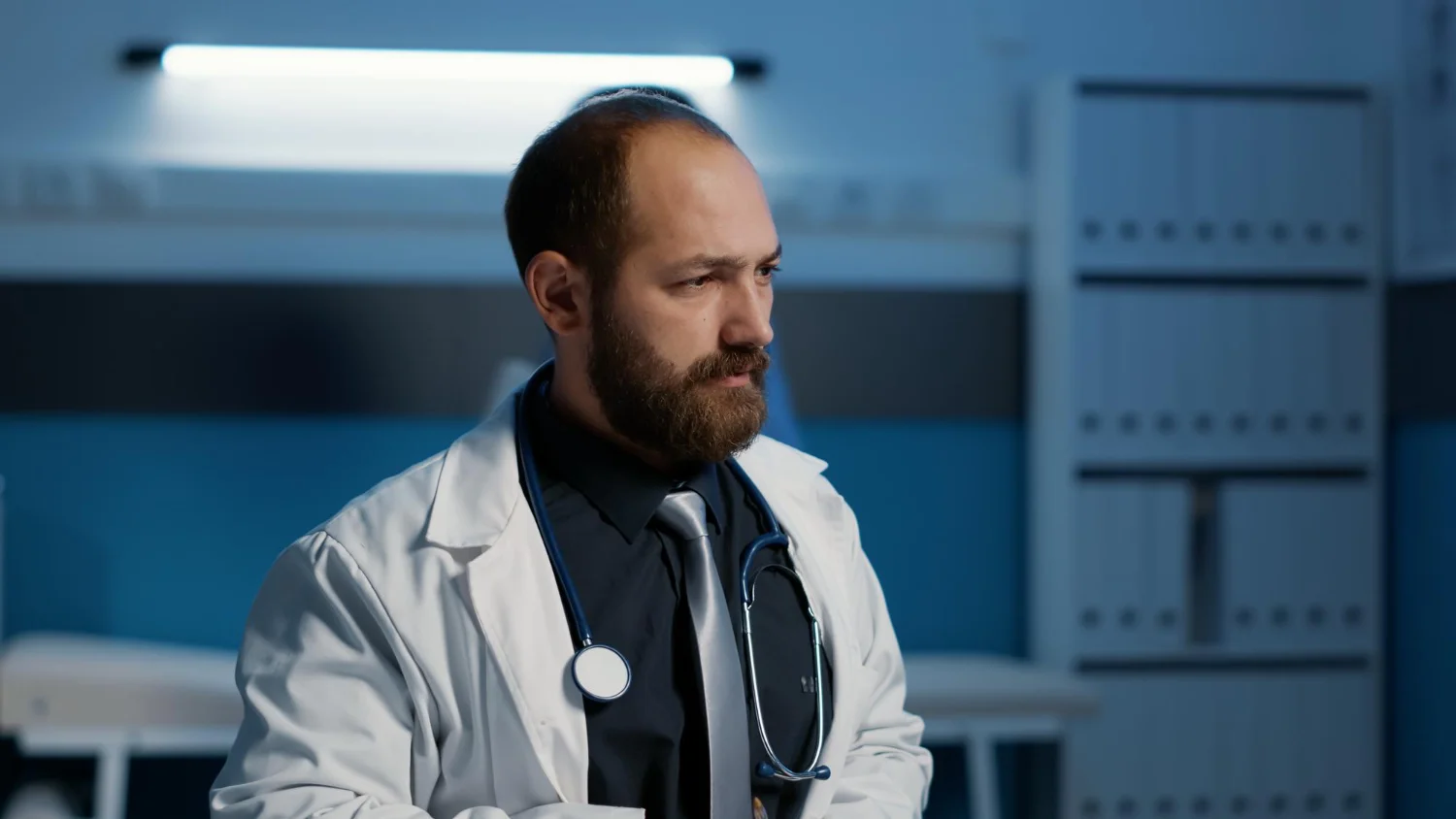Drug and Alcohol Detox: Definition, Medications, Process, Side Effects
Drug detox is the first, most crucial, and often most medically demanding step toward overcoming substance dependence. It eliminates toxic substances from the body, stabilizes physical health, and prepares individuals for long-term treatment. Drug detox isn’t just about abstinence—it’s about managing withdrawal symptoms, reducing health risks, and ensuring a safe transition to sobriety.
What Is Drug Detox?
Drug detox is the medically supervised process of eliminating addictive substances from the body to break physical dependence, stabilize the patient, and reduce withdrawal-related complications. It is essential for individuals experiencing substance use disorder (SUD) when withdrawal symptoms are expected to be dangerous, uncomfortable, or life-threatening. Detoxification addresses the physical aspect of addiction, serves as a bridge to therapeutic treatment, and initiates the body’s recovery.
What Medications Are Used in Drug Detox?
Several medications are used to support detox and manage withdrawal. These include:
-
Benzodiazepines – reduce anxiety, prevent seizures, and promote sleep in alcohol and sedative withdrawal .
-
Methadone – a long-acting opioid used to taper heroin and prescription opioid use .
-
Buprenorphine – eases opioid withdrawal symptoms and reduces cravings .
-
Naltrexone – blocks the euphoric effects of opioids or alcohol, aiding in relapse prevention .
-
Clonidine – treats hypertension and alleviates anxiety, muscle aches, and sweating.
Each medication is prescribed based on the drug involved, the severity of dependence, and the individual’s medical history.
What is The Role of Medication in Drug Detox?
Medication plays three critical roles in drug detox: alleviating withdrawal symptoms, preventing complications, and reducing cravings. It transforms a chaotic process into a manageable, clinical, and strategic intervention. For many, medication-assisted detox is not optional, it’s medically necessary to avoid potentially harmful side effects such as seizures according to Detoxification and Substance Abuse Treatment [Internet]. Rockville (MD): Substance Abuse and Mental Health Services Administration (US); 2015.
What are the Symptoms of Drug Withdrawal During Detox?
Withdrawal symptoms can be severe, variable, and dangerous. Common symptoms include:
-
Opioids – muscle aches, nausea, diarrhea, yawning, anxiety.
-
Alcohol – tremors, hallucinations, seizures, delirium tremens.
-
Benzodiazepines – insomnia, agitation, panic, seizures.
-
Stimulants – fatigue, depression, slowed thinking, suicidal ideation.
Symptom severity depends on the drug type, duration of use, and overall health.
How Long Drug Detox Takes (Scientific Proof)?
The duration of detox varies, but data suggest:
-
Alcohol detox: 5–7 days on average .
-
Opioid detox: 4–10 days depending on the opioid’s half-life .
-
Benzodiazepine detox: 10–14 days or longer, due to slow taper needs .
-
Stimulant detox: 3–5 days with prolonged psychological symptoms.
Medically supervised detoxification is approximately 7.3 days, with adjustments based on individual needs, according to the National Institute for Health and Care Excellence (NICE) guidelines published in 2016. This duration can vary depending on factors such as the specific substance involved, the severity of dependence, and the presence of co-occurring medical or psychiatric conditions.
What Happens During Drug Detox?
The key characteristics of drug detox are listed below:
Initial Medical Assessment:
The first aspect of detoxification that is medically guided is conducting a complete medical screen to create an efficient detox plan. This evaluation details the patient's medical history and addictions, and it is the first reference for the patient's treatment process.
Withdrawal Experience:
Addicts could be used to high amounts of drugs, and during detox, the level of intoxication starts to decrease gradually, which could drive them to crave the drugs little by little. However, when a person starts having symptoms of a lack of substance consumption, this person is exposed to the health risks associated with withdrawal. For instance, the duration of addiction, type of substance, volume of consumption, and health condition all play important roles in the process.
Physical Symptoms:
These phases are caused by intestinal disorders, quakes, sweating, headaches, muscle pain, and other physical symptoms. These afflictions may include intensified heartbeat, stomach cramps, and fatigue.
Psychological Effects:
Furthermore, quitting may occur with various emotional symptoms like absence, exasperation, pressure, inescapable desires, etc. For some patients, mood changes, insomnia, and even depression could be extra issues that they could struggle to deal with.
Severe Symptoms:
In several instances amounting to hallucinations, delirium, or seizures, withdrawal might begin to occur. This shows that the professional support and monitoring that is given during detoxification can save and bring well-being to these addicts.
Medication Support:
Patients are loaded with drugs that target cravings and relieve withdrawal symptoms, as well as other conditions like mental problems that arise due to discontinuation. Although the medication does not wipe out the detox system completely, the medication helps to make the following process go a bit easier.
24/7 Support:
For success in detox, it is essential to care for people compassionately and vigilantly. Patients in detoxification facilities receive monitoring and support 24 hours a day to ensure their safety and wellness during the detox phase.
What Side Effects and Risks of Drug Detoxification?
Drug detox can be uncomfortable and risky. Potential side effects and dangers include:
-
Seizures, heart irregularities, and delirium tremens (DTs) in alcohol detox.
-
Suicidal ideation, depression, and anxiety during stimulant withdrawal.
-
Respiratory complications, electrolyte imbalances, or relapse overdose post-detox.
That’s why detox must be supervised, medically managed, and risk-informed.
What are the Benefits of Drug Detox and Drug Taper?
Drug detox:
-
Reduces medical emergencies, prepares the mind, and restores physical health.
-
Improves therapy outcomes, lowers relapse rates, and saves lives.
-
Builds momentum, provides structure, and instills hope.
Tapering—gradual reduction of substance use—further reduces withdrawal severity and enhances safety.
Where to Find the Best Drug Detox Centers in the United States
Top-rated drug detox centers offer accreditation, board-certified physicians, 24/7 care, and seamless transitions to rehab. Florida and California are well known for their drug rehab centers as well as specialty centers throughout the country.
What are the Key Characteristics of Detoxification Treatment?
The key characteristics of addiction detoxification treatment are:
1. Safety and Medical Supervision:
The primary aim of the detoxification treatment program for addiction is to keep individuals alive and well by removing them from harmful substances during this process. Medical professionals usually manage detoxification in a medical center, where supplementary medical help is immediately accessible, whenever necessary.
2. Individualized Assessment and Treatment Plans:
Every individual has a different addiction history, a unique pattern of substance use, underlying medical concerns as well as mental health issues that may contribute to their substance abuse problem. Successful detoxification centers use personalized assessment processes to make individual treatment plans that pinpoint the unique needs and difficulties of each person.
3. Management of Withdrawal Symptoms:
Symptoms arising from the withdrawal of addictive substances may differ in intensity and are influenced by the substance they were addicted to and other factors about the user. Addiction detoxification treatment features mechanisms of managing detoxification symptoms usually with drugs, supportive therapy, or counseling to soothe the agitation and to cut the risk of complications.
4. Supportive Environment:
Detoxification may be one of the most difficult and intense stages of the emotional journey. Addiction Detox Treatment gives an ambiance of safeness, respect, and support where addicts get motivation and courage as they strive to regain sobriety. As part of the "supportive environment," different types of therapies are provided, such as CBT or group therapy, which objective is to provide tools to face emotional and psychological issues.
5. Holistic Approach:
An optimal addiction detoxification entails an understanding that addiction is an intricate disease that affects particular body, mind, and spirit aspects. So, as a result, detox methods are finding a way to deal with the aspects of addiction, not only the physical ones, but also the psychological, social, and spiritual ones. It may, however, include the combination of supplementary therapies, including meditation skills, yoga, art activities, and dietary support that work through the improvement of the general state of well-being.
6. Continuity of Care:
"Cleaning" is only the first stage; it is solely the starting point of recovery. To a great extent, the detoxification process of addiction treatment draws attention to the necessity of a continuum of care, which in turn provides the patient with help in two different forms, for example ongoing treatment and the assistance of support services. This will involve guiding them to either residential or outpatient rehab centers, counseling sessions as well as support groups, and other relevant resources so that they are equipped with the required tools to permanently free themselves from the web of addiction and build for themselves a full life of satisfaction.
7. Education and Relapse Prevention:
Learning is indeed a great key how to cope with addiction. Treatment of detoxification enlightens people about the nature of an addiction, trigger factors that may initiate relapse, survival tactics, and healthy changes they have to make to remain sober in the long term. With the aid of information and skills that are needed for individuals to live free from the abuse of drugs or alcohol, detox programs help to avoid relapses and promote permanent recovery.
Facilitating recovery not only involves curbing the physical aspect of drug addiction, but it also has to do with building a personal foundation for the patients to fully recover and begin a life full of meaning and happiness.
How Long Does Drug Detox Last?
The time of drug detoxification lasts for quite a certain period, with each individual's case being different, based on how heavily they use the drugs, their body conditions, and the approach considered for the treatment process.
The detox can go from days to weeks depending on several factors, such as:
1. Short-Acting Drugs:
The shorter half-life of the drugs affects the detox treatment in the sense that they will normally settle down in 5 to 10 days into deep rehabilitation; an example of this is heroin.
2. Long-Acting Drugs:
Drugs that have a long-lasting effect such as benzodiazepines usually take more time to wash off, taking from 10 days up to several weeks to complete the detox.
3. Severity of Dependence:
While the degree of individual dependence on the drugs is a factor that affects the time frame of detox, cellular change could be a much longer-term endeavor. In the case of people whose addiction is more severe, they are usually vulnerable to experiencing some of the withdrawal symptoms more intensely, and they also might need more time for detoxification.
4. Medical Detox vs. Social Detox:
Medical detox programs are strict procedures led by specialists to help with withdrawal. It may also contain medications used to manage the symptoms of withdrawal, but has, however shorter detox duration compared to social detox programs which do not have medical intervention.
5. Individual Factors:
When questioning the different body types of people undergoing detoxification, the period of the detoxification might vary depending on factors like metabolism, overall health, and, of course, any coexisting medical or psychological issues.
Remember that detox should not be taken as the only part of the recovery process but instead as a part of it. After the detoxification part comes to an end, people will normally progress to phase two of treatment by joining and taking part in various programs that have as purpose of working out what has caused the addiction and, more importantly, keeping on the relapse.
Does Drug Detox Treatment Have Side Effects?
Side effects of drug or alcohol detox may arise while the body is adjusting to the withdrawal. This could manifest in the form of physical side effects of nausea, vomiting, and muscle aches, among others, as well as psychological symptoms of anxiety, depression, and extreme craving. In severe cases, medical complications such as seizures and hallucinations may develop. Detoxification must be done in a medically supervised context to manage the symptoms and guarantee safety. Treatment will include medications and supportive interventions used to diminish discomfort and promote healing.
To find a suitable facility for detoxification treatment, check out our Treatment Center Finder.







